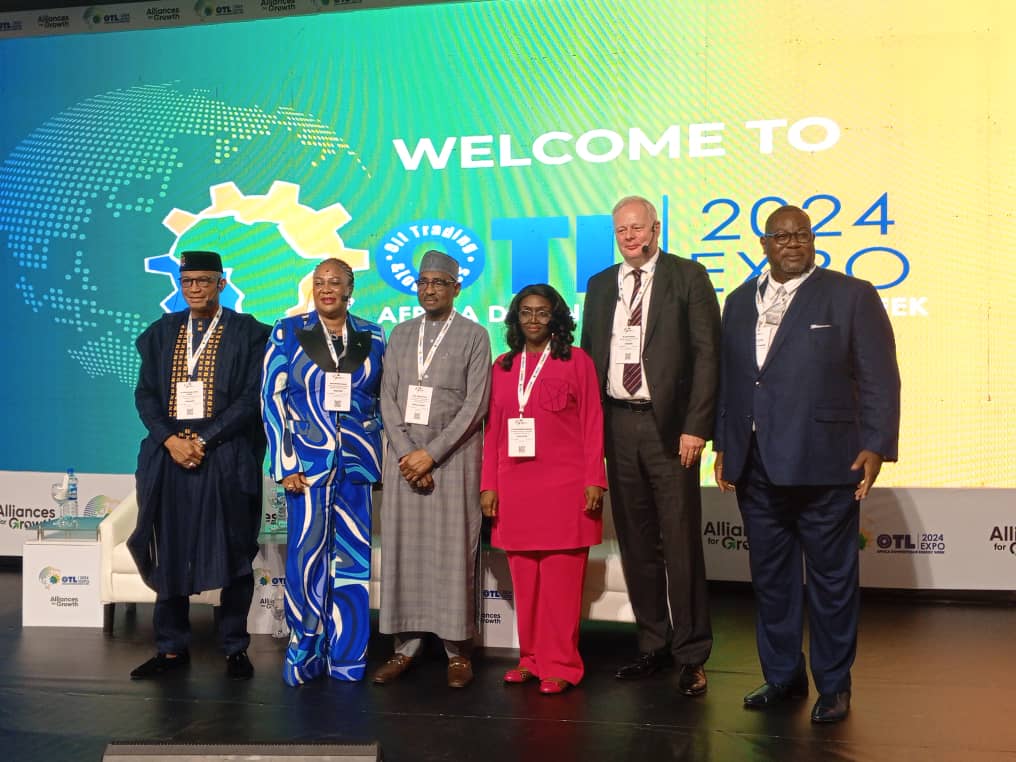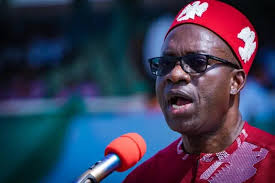* Issues Nine Licenses to Establish (LTEs), Seven Licenses to Construct (LTCS), and Four Licenses to Operate (LTOS) for modular refineries.
With the spate of ongoing reforms and investments in the oil and gas sector, Nigeria is set to become a net exporter of petroleum products in the nearest future.
This was disclosed by the Chief Executive, Nigerian Midstream and Downstream Petroleum Regulatory Authority (NMDPRA), Engr Farouk Ahmed, during the opening session of the ongoing 18th OTL Africa Downstream Energy Week, currently holding in Lagos, Nigeria.
While delivering his keynote address, the Authority Chief Executive announced that the NMDPRA is currently making a significant push to expand Nigeria’s refining capabilities. This includes granting nine Licenses to Establish (LTEs), seven Licenses to Construct (LTCS), and four Licenses to Operate (LTOS) for modular refineries.
The gas sector is also making strides, boasting a licensed processing capacity of 16 billion standard cubic feet per day, a transportation capacity of 5 billion, and a distribution capacity of 1.5 billion standard cubic feet daily.
These initiatives are all aimed at boosting local production and reduce reliance on imports.
Addressing critical concerns, Engr. Ahmed further emphasized the authority’s commitment to enhancing quality and safety within the industry. He highlighted ongoing collaborations with stakeholders and regulatory support for key government initiatives, including the Decade of Gas and Pi-CNG programs, all designed to fulfill the objectives of the Petroleum Industry Act (PIA).
Ahmed also announced plans to promote a uniform gas transportation code, aligning with the development of the West African Gas Pipeline (WAGP) to Morocco. This initiative seeks to streamline natural gas movement across the region.
He proposed the establishment of an association for Energy Regulators in West Africa, which could integrate with existing regional bodies from East and South Africa to form a Pan-African Energy Regulators Association, enhancing regulatory coherence across the continent.
Ahmed noted that several interventions are underway to expand CNG infrastructure through the Pi-CNG initiative, the Decade of Gas Program, and the MDGIF. Plans are in place for retail outlets to include CNG add-ons to support the growing number of CNG vehicles in Nigeria. All these are part of the strategies the NMDPRA is putting into play as part of its advocacy for Compressed Natural Gas (CNG) as a viable alternative to Premium Motor Spirit (PMS) and Automotive Gas Oil (AGO).
In collaboration with industry stakeholders, NMDPRA is developing new safety and compliance policies, particularly for the expanding CNG sector. Ahmed also mentioned efforts to enhance the availability and affordability of cooking gas. NMDPRA is partnering with companies like Chevron Nigeria Limited and Mobil Producing Nigeria to promote domestic production of Liquefied Petroleum Gas (LPG), similar to Nigeria LNG Limited, which has fully domesticated its butane production since 2022.
Reflecting on the regulatory landscape, Ahmed noted that the NMDPRA has revised and consolidated its regulations through strategic stakeholder engagements, simplifying compliance processes. Over the past eighteen months, Nigeria has seen innovative policies, driven by President Bola Tinubu’s reforms, transforming the sector into a more attractive investment destination.
Ahmed reaffirmed Nigeria’s ambitious goals: achieving 3 million barrels per day in crude oil production, utilizing 10 billion standard cubic feet of gas daily, and increasing domestic refining capacity to position Nigeria as a net exporter of petroleum products.
He concluded by highlighting the robust frameworks in place for the growth of Nigeria’s petroleum industry, reiterating NMDPRA’s commitment to supporting President Tinubu’s reform initiatives and enhancing regulatory processes for smoother licensing and authorization.








Very well written information. It will be valuable to anyone who usess it, as well as myself. Keep doing what you are doing – can’r wait to read more posts.
I beloved up to you’ll obtain performed right here. The sketch is tasteful, your authored subject matter stylish. nevertheless, you command get bought an nervousness over that you would like be handing over the following. ill certainly come more before again as precisely the similar just about very often within case you shield this increase.
Hello! I just would like to give a huge thumbs up for the great info you have here on this post. I will be coming back to your blog for more soon.
incrível este conteúdo. Gostei muito. Aproveitem e vejam este conteúdo. informações, novidades e muito mais. Não deixem de acessar para aprender mais. Obrigado a todos e até mais. 🙂
Great post, you have pointed out some great details , I likewise believe this s a very superb website.
I real thankful to find this site on bing, just what I was searching for : D likewise saved to fav.
so much wonderful information on here, : D.